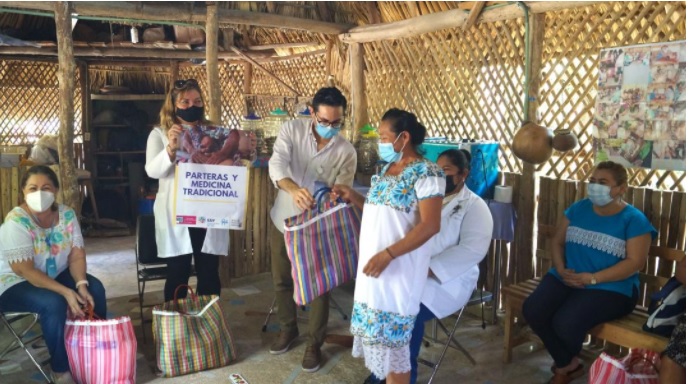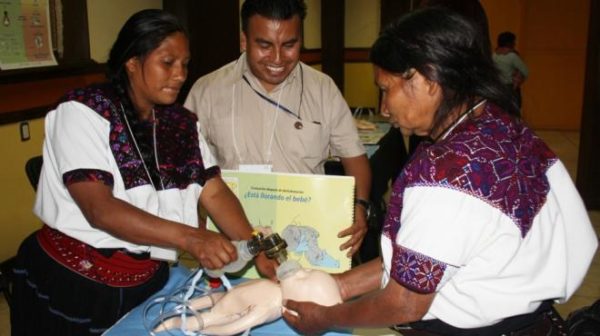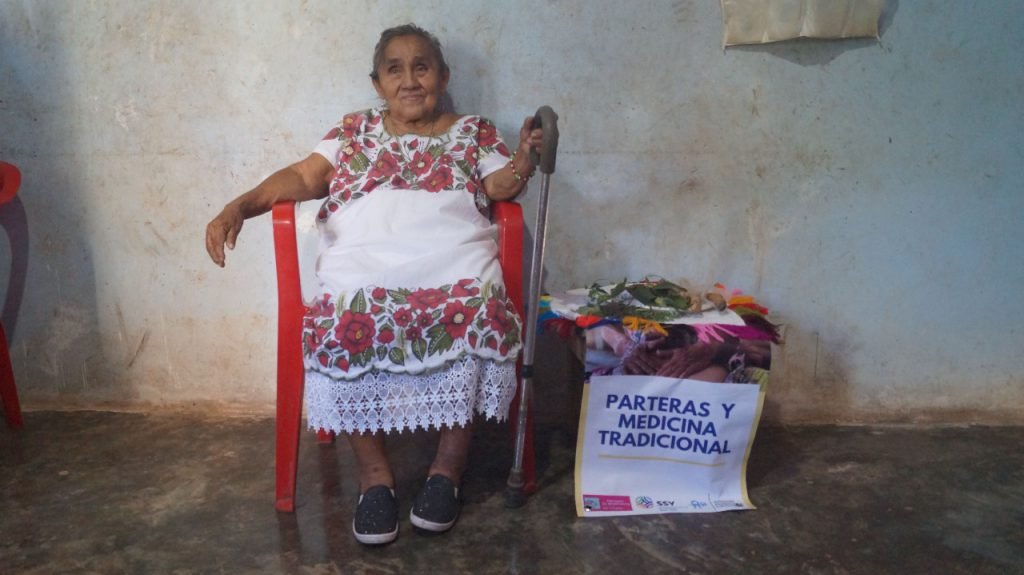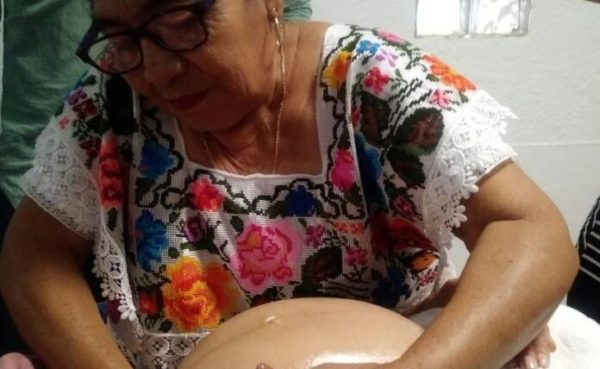Mèrida, Yuc., (May 10, 2021).- As part of the celebration of Mother’s Day, we must remember the traditional Maya midwives of Yucatán, who are great allies of public health agencies to contribute to the reduction of maternal mortality, bringing hundreds, or maybe even thousands of babies into the world every year.
By virtue of the work traditional midwives do in supporting the health of mothers and babies, they deserve great recognition for helping mothers in both rural and urban communities.
It should be noted that Maya midwives often work in remote communities, such as in Chumbec, municipality of Sudzal, Yucatan, where home births have increased by 600 percent.

Meet some of the traditional midwives of Yucatán
In this activity is Mrs. Rafaela Can Aké, 63 years old, from the Chumbec comunity, in Sudzal municipality, who has dedicated more than half of her life to helping and guiding pregnant women and receiving their children, either in a hammock, bed, underwater or on the floor.
In total, she said, she has brought more than 500 babies into the world, which she follows up in their first weeks of life. Also, she assists medical personnel in some private hospitals, at the mother’s own request.
In 2014, she obtained a scholarship from the Semillas foundation to be a midwife leader and train other women, which has allowed her to integrate more allies from her community in this practice, as well as all her daughters, granddaughters and daughters-in-law.
On the other hand, she participates in the development of traditional medicine through her herbal knowledge and experience.

The oldest midwife in Yucatan is still active
Another case is that of Mrs. Felipa Cetina Moo, 83 years old and 50 as a midwife, who is the oldest midwife in Yucatan.
She is a native of the community of Tibolón, Sotuta municipality of Yucatàn, where she also practices traditional Maya medicine, being a bastion of ancestral wisdom and with extensive knowledge of Yucatecan herbalism.
She expressed that she has brought hundreds of girls and boys into the world, starting with the birth of her first grandchild.

In addition, it has been recognized by the National Autonomous University of Mexico (UNAM) and the Yucatan Scientific Research Center (CICY), for being included in the book Biodiversity and human development in Yucatan. Doña Felipa was included in the book «Biodiversity and Human Development in Yucatán».
While Mrs. Belem Tun Canto, with 20 years of experience, also preserves the culture, with an ancestral activity in Maya medicine and massages. These people are commonly called “sobadores.”


